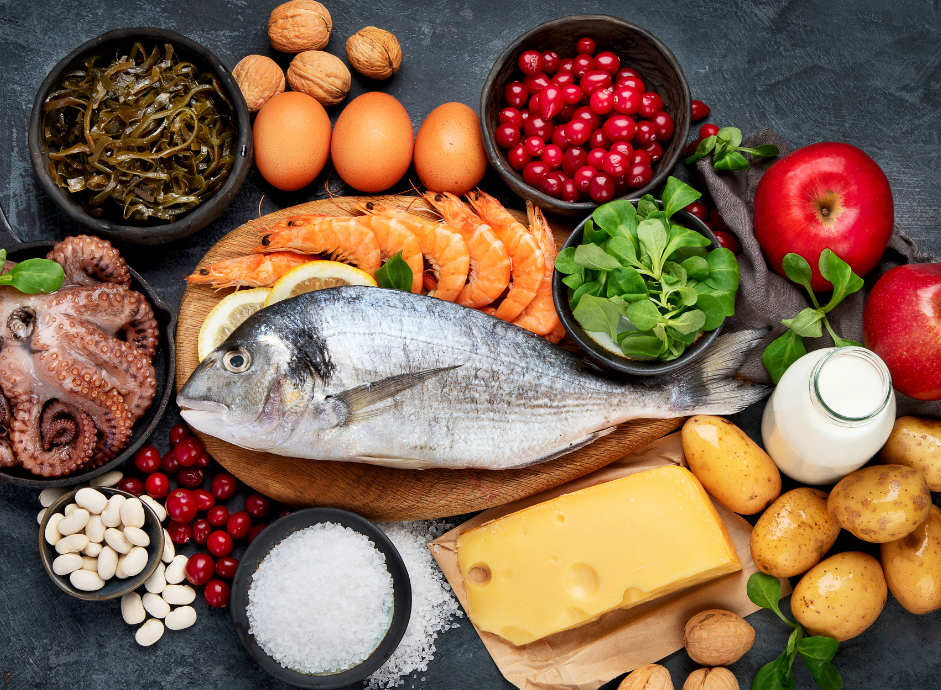- Home
- Forums
- General forums
- Good to know
- The 4 best natural antihistamines
The 4 best natural antihistamines
- 110 views
- 0 support
- 2 comments
All comments

Unregistered member
11/10/2017 at 08:50
[Moderated content]

Unregistered member
11/10/2017 at 11:30
[Moderated content]
Articles to discover...
Subscribe
You wish to be notified of new comments
Your subscription has been taken into account








Margarita_k
Good advisor
Margarita_k
Last activity on 07/10/2020 at 11:39
Joined in 2016
1,195 comments posted | 116 in the Good to know group
2 of their responses were helpful to members
Rewards
Good Advisor
Contributor
Messenger
Committed
Explorer
Evaluator
If you have seasonal allergies, you know what it’s like to suffer. Sneezing, itchy eyes, congestion, and sinus pressure — all of these symptoms can become nearly unbearable. You’ve likely tried every over-the-counter solution to tame these seasonal symptoms, but may not want to take medications. There is evidence that completely natural solutions can ease your symptoms.
Hay fever, allergic rhinitis, or seasonal allergies — numerous drugs, both prescription and over the counter, are made to help combat these cold-like symptoms. But some of these medicines have their own lengthy list of side effects. Understanding how histamines work can help you better understand how natural antihistamines can be an ally during allergy season.
How Do Antihistamines Work?
Your allergies are an immune response to an otherwise harmless substance. This substance — whether it’s pollen or dust — comes into contact with cells in the mucus membranes of your nose, mouth, throat, lungs, stomach, and intestines. This triggers the release of histamine.
Histamine is a protein that causes all of the symptoms you associate with allergies — the sneezing and cold-like symptoms you despise. Antihistamines block histamine activity, seeking to stop the allergic reaction.
Many allergy medications on the shelves of your local drug store work as antihistamines. But there are also certain foods and plant extracts that can have similar effects on histamine production.
1. Stinging Nettle
A common herb in natural medicine, stinging nettle, may also be a natural antihistamine. In one study, 58 percent of participants found their symptoms relieved with the use of freeze-dried nettles, and 69 percent rated it better than the placebo. Stinging nettle can be found online and at health food stores. The study participants in question used 300 mg each day.
2. Quercetin
Quercetin is an antioxidant found naturally in onions, apples, grapefruit, okra and red wine. Several studies have demonstrated the antihistamine effects of quercetin. One found that it even lessened the respiratory side effects of allergies in rats by reducing inflammatory response in the airways. You can purchase quercetin as a supplement or simply add more quercetin-rich foods to your diet.
3. Bromelain
Bromelain is a compound most commonly found in pineapples, but you can also find it in supplement form. It’s said to be effective at treating respiratory distress and inflammation associated with allergies. One study suggests taking between 400-500 mg three times daily.
4. Vitamin C
Vitamin C is an easy-to-find natural antihistamine. It’s prevalent in many fruits and vegetables, and also in supplement form. Because it’s free of side effects and nontoxic, it’s a safe solution for treating stuffy nose and other unpleasant symptoms of seasonal allergies. Experts suggest taking at least 2 g per day for the best antihistamine results.
When you suffer from allergies, relief can seem just out of reach. By combining natural remedies with proper self-care and allergen avoidance (when possible), you can find allergy help. Also, remember that while food sources of these antihistamines are natural and safe, you need to make sure your supplements come from quality sources, so check with your doctor prior to using supplements.
Source: healthline.com